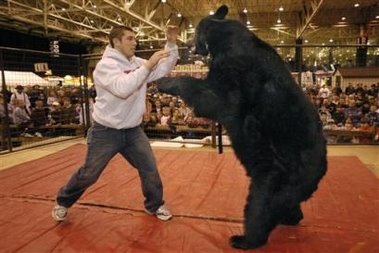
Paul Krugman foe Donald Luskin has a new article at smartmoney.com that challenges the rhetoric of those who claim a recession is imminent.
Consider the case of Robert Rosenberg, the celebrated economist for Merrill Lynch. He's been bearish forever (that didn't stop Merrill Lynch from throwing away untold billions on foolish investments in exotic subprime mortgage derivatives — but that's another story). Rosenberg is one of those economists who is very facile at quoting economic statistics — and massaging them to make his bearish case. Unless you're an economist yourself, it's pretty easy to get swayed by his seemingly authoritative arguments.You can find the full column here.
This week, following the announcement that the unemployment rate has risen to 5% from a low of 4.4% earlier this year, Rosenberg has gotten a lot of publicity "proving" statistically that this means we're heading into recession. He told Merrill clients: "At no time in the past 60 years has the unemployment rate risen 60 basis points (50 bps is the actual cutoff) from the cycle low without the economy slipping into recession..." And he attached a chart, claiming that this was true "100% of the time."
Scary, huh? An indicator that works all the time. Never misses!
But let's look a little closer. Note that Rosenberg cheats a bit by talking about rises in the unemployment rate "from the cycle low." What does that mean? How do you know when you're at the "cycle low," until months or years have gone by and you can identify a particular moment as a "cycle low?"
This is important, because there have been times when the unemployment rate has risen by 50 basis points, or more, when a recession did not follow. But apparently Rosenberg doesn't count those, because those weren't a "cycle low" according to his personal definition. So when you look at all the data, not just the examples that fit Rosenberg's argument, what he claims is not actually true "100% of the time."
One example is February 1986, when the unemployment rate surged from 5.7% to 6.2% in a single month. No recession followed. The next recession was not until 1990.




